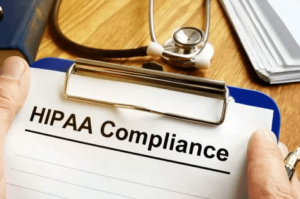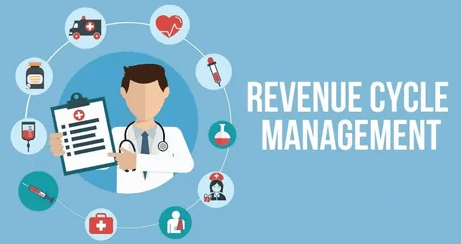Ensuring Compliance: Best Practices in Medical Billing and Coding
Introduction
Ensuring medical billing and coding compliance is paramount to maintaining accuracy, legality, and financial stability within healthcare systems. Best practices involve meticulous documentation, aligning codes with diagnoses, and adhering to industry standards like HIPAA and ICD-10. Regular training for staff, continuous auditing, and embracing technology aid in preventing errors and fraud. Proper communication between coders, billers, and healthcare providers ensures a seamless process. Healthcare organizations mitigate risks, avoid penalties, and sustain patient trust by upholding compliance. Ultimately, these practices safeguard revenue integrity and uphold the integrity of medical records, promoting effective and ethical healthcare services.
and coding compliance is paramount to maintaining accuracy, legality, and financial stability within healthcare systems. Best practices involve meticulous documentation, aligning codes with diagnoses, and adhering to industry standards like HIPAA and ICD-10. Regular training for staff, continuous auditing, and embracing technology aid in preventing errors and fraud. Proper communication between coders, billers, and healthcare providers ensures a seamless process. Healthcare organizations mitigate risks, avoid penalties, and sustain patient trust by upholding compliance. Ultimately, these practices safeguard revenue integrity and uphold the integrity of medical records, promoting effective and ethical healthcare services.
This article delves into seven vital medical billing and coding practices that enhance your life by promoting accuracy, efficiency, and compliance in healthcare administration.
Accurate Documentation
Accurate documentation stands as a cornerstone in the realm of medical billing and coding. By maintaining meticulous patient records and comprehensive treatment information, healthcare organizations can establish a strong foundation for coding practices that align seamlessly with diagnoses and procedures. Precise documentation not only facilitates precise code selection but also aids in justifying the medical necessity of provided services. This practice minimizes billing errors and ensures that the services billed accurately reflect the care delivered to patients.
Moreover, accurate documentation is essential for healthcare professionals, enabling decisions about patient care and treatment plans. It contributes to effective communication among interdisciplinary teams, supports clinical research, and is a historical record of a patient’s medical journey. Ultimately, accurate documentation enhances patient safety, facilitates compliance with regulatory standards, and fosters transparency in healthcare practices, promoting optimal patient outcomes and financial integrity within the healthcare system.
Ongoing Training
Ongoing training is a cornerstone of success in the dynamic field of medical billing and coding. Regular education for staff members is essential to staying abreast of the latest developments in coding guidelines, compliance regulations, and industry standards, thereby promoting accuracy, efficiency, and compliance within healthcare systems.
Keeping Up with Evolving Coding Guidelines:
Coding guidelines are continuously updated to reflect advancements in medical practices and technologies. Regular training sessions empower staff with the knowledge and skills to accurately interpret and apply these evolving guidelines. This proactive approach reduces the likelihood of coding errors, denials, and rework, ensuring that medical records reflect accurate patient care information.
Mastering Compliance Regulations:
Compliance regulations, such as those outlined in HIPAA and other industry-specific mandates, are critical for safeguarding patient confidentiality and data security. Ongoing training educates staff on the latest compliance requirements, helping them navigate sensitive patient information responsibly. This knowledge ensures that patient privacy is upheld, mitigating the risk of legal complications and reputational damage.
Adapting to Industry Standards:
Changing behaviors and technological breakthroughs have an impact on the healthcare sector as well. Regular training allows staff to adapt to new technologies, coding software, and billing procedures. Staying current with industry standards enhances workflow efficiency, minimizes errors, and optimizes revenue cycle management.
Fostering a Culture of Continuous Learning:
Encouraging ongoing training fosters a culture of continuous learning among staff. This boosts professional growth and promotes a sense of accountability and dedication to providing accurate coding and billing services. Well-informed staff members are more likely to identify and address potential issues before they escalate.
Mitigating Risks and Enhancing Compliance:
Consistent education sessions help staff recognize the potential risks of improper coding or non-compliance. Organizations can significantly reduce the chances of legal penalties, audits, and revenue loss by equipping themselves with the necessary knowledge and skills. Well-trained staff are better equipped to make informed decisions that align with regulatory standards, ultimately contributing to the financial stability of healthcare institutions.
Auditing and Monitoring
Auditing and monitoring are crucial to maintaining integrity in medical billing and coding. Regular audits help identify discrepancies and errors, ensuring coding accuracy and adherence to regulations. Through systematic review, organizations can rectify mistakes promptly, preventing claim denials, revenue loss, and potential legal repercussions. This practice promotes transparency, enhances compliance with better guidelines, and safeguards the accuracy of patient records and billing processes.
HIPAA Compliance
HIPAA compliance is a cornerstone of safeguarding patient privacy and maintaining the confidentiality of sensitive health information within the healthcare industry. Health Insurance and Accountability Act (HIPAA) guidelines are essential to ensuring the secure handling of electronic transactions and protected health information (PHI).
cornerstone of safeguarding patient privacy and maintaining the confidentiality of sensitive health information within the healthcare industry. Health Insurance and Accountability Act (HIPAA) guidelines are essential to ensuring the secure handling of electronic transactions and protected health information (PHI).
Strictly following HIPAA guidelines prevents unauthorized access and discloses patient data breaches. Healthcare organizations can safeguard sensitive information from cyber threats and data breaches by implementing robust security measures and encryption protocols for electronic transactions. This preserves patient trust and protects the institution from potential legal and financial consequences.
HIPAA compliance also entails proper training and education for staff members. Regularly educating employees about the importance of patient privacy, the significance of PHI security, and the correct procedures for handling sensitive information reinforces a culture of responsibility and accountability.
Compliance with HIPAA regulations instills confidence in patients, as they are assured that their health information is treated with confidentiality. This, in turn, strengthens the doctor-patient relationship and contributes to overall positive healthcare experiences.
Clear Communication
Clear communication is a pivotal factor in medical billing and coding, playing a crucial role in preventing discrepancies and ensuring accuracy throughout the billing process. Effective collaboration between coders, billers, and healthcare providers fosters a cohesive workflow that upholds standards of precision and compliance.
Seamless Interdisciplinary Collaboration:
Collaboration among coders, billers, and healthcare providers is essential to bridge the gap between clinical services and accurate billing. Regular communication ensures that the codes selected for billing accurately represent the diagnoses, treatments, and services provided. This ensures consistency, which could lead to claim denials, revenue loss, or legal complications.
Real-Time Information Sharing:
Timely communication enables coders and billers to access the most up-to-date patient information and clinical documentation. When coders clearly understand the treatments and procedures performed, they can assign appropriate codes that align with the specific patient case. This, in turn, enhances billing accuracy and reduces the likelihood of errors arising from incomplete or outdated information.
Addressing Complex Cases and Queries:
Complex cases often require collaboration to accurately translate intricate medical information into appropriate codes. Effective communication channels allow for immediate clarification of queries between coders and healthcare providers. This proactive approach ensures that coding decisions are well-informed and reflect the complexity of the medical scenario.
Technology Integration
Integrating advanced software and systems within medical coding and billing practices has become a game-changing strategy for healthcare organizations seeking to enhance efficiency, reduce human errors, and optimize their overall revenue cycle management.
Utilizing cutting-edge technology enables the automation of time-consuming and repetitive coding and billing workflow tasks. Automated processes risk human error, ensuring codes are accurately assigned and correctly submitted. This reduces the likelihood of claim denials and accelerates reimbursement timelines.
Furthermore, technology integration allows for real-time access to updated coding guidelines and regulatory changes. Coding professionals can leverage software tools to cross-reference diagnoses and procedures, ensuring codes align with industry standards. Such integration boosts coding accuracy and promotes adherence to evolving coding practices.
Efficiency gains are substantial as well. Automated systems streamline administrative tasks, allowing staff to allocate more time to tasks that require critical thinking and analysis. This optimization leads to quicker claim processing, a reduced backlog, and improved cash flow for healthcare organizations.
Ethical Billing
Ethical billing is paramount in maintaining trust and fairness within healthcare systems. Adhering to ethical standards prevents practices like upcoding or unbundling, ensuring that billed services accurately reflect the care provided. By avoiding exaggeration of services to seek higher reimbursement, healthcare organizations uphold transparency, integrity, and compliance. Ethical billing practices safeguard patient trust and contribute to a just healthcare environment where services are billed accurately and fairly, fostering a sustainable and ethical foundation for financial interactions in the industry.
Closing Words
In conclusion, ensuring compliance through the best medical billing and coding practices is essential for accurate, efficient, and ethical healthcare operations. These practices, including accurate documentation, ongoing training, auditing, HIPAA compliance, clear communication, technology integration, and ethical billing, uphold patient privacy, reduce errors, and maintain financial integrity. By adhering to these principles, healthcare organizations can navigate the complexities of billing and coding while promoting trust, compliance, and quality care delivery within the ever-evolving healthcare landscape.








